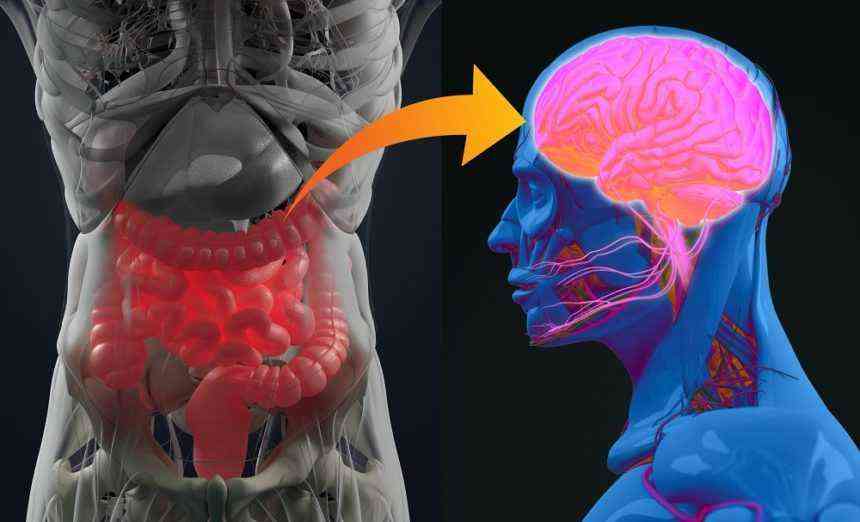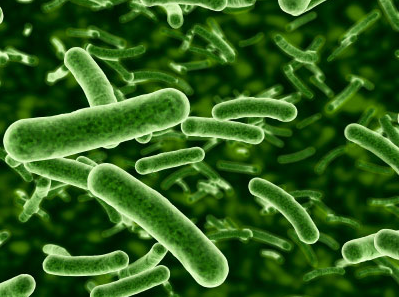Our bodies are home to an estimated 100 trillion "good" bacteria. There is about 10 times as many bacterial cells as human cells in the body, and most of them reside in our gut. Not only we live in balance and harmony with these beneficial microorganisms, but they are actually necessary to our survival.
Probiotics are commonly known as good, friendly or healthy bacteria. They are usually bacteria, but certain types of yeasts can also function as probiotics that help keep the intestinal tract healthy. They became extremely of use in recent years as many people take them as supplements to improve the functioning of their digestive system.
Probiotics colonize the intestinal tract with health-boosting microorganisms, manufacturing vitamins(for example, vitamin K) and stimulating the immune system.
Due to the increasing interest in gastroenterology, researchers are actively exploring other health benefits of probiotics, in addition to improving digestion. Recent studies demonstrate a tight association between probiotics and mental health, discovering whole new aspects of their use.

1. What is the connection between probiotics and mental disorders?
It is mildly unusual for people to associate gut microbiota with mental instability because the influence that probiotics exert on the nervous system is still unclear.
The existing studies are very small, which makes it hard to know how efficient probiotics are for mental disorders. However, according to a 2015 Research Review, probiotics play a role in establishing(or reestablishing)the connection between the nervous system(that includes the brain and the spinal cord)and the gastrointestinal tact, called the gut-brain axis(GBA).
Intestinal microbial colonization process initiates neurochemical changes in the brain, and induces signaling mechanisms that affect neuronal pathaways implicated in motor control and anxiety-like behavior. These changes result in:
- Reducing mental clarity by the effect that probiotics exert on the brain via the vagus nerve.
- Reducing cortisol levels, therefore reducing stress.
- Producing major brain chemicals, including: GABA, dopamine, norepinephrine, serotonin, and acetylcholine.
- Maintaining cortisol levels low, thus affecting the proinflammatory and anti-inflammatory reaction and reducing brain inflammation.
- Keeping the growth of bad bacteria in check: harmful bacteria produce lipopolysaccharides that affect the brain by reducing levels of dopamine and serotonin. This leads to damaging the memory center(hippocampus), causing short-term memory loss and increasing the levels of cortisol.
- Protecting the brain from free radical damage due to antioxidant characteristics of probiotics.
- Formation of new brain cells by boosting the levels of brain-derived neurotrophic factors(BDNF). This brain protein stimulates the creation of new neurons and exhibits natural antidepressant qualities.
2. What did researchers find?
The most commun groups that are proved to have a clinical effect on mental disorders are Lactobacillus and Bifidobacterium. Each adress different health conditions, therefore should be chosen accordingly.
According to Institut Rosell-Lallemand in France,the daily intake of a combination of Lactobacillus helveticus and Bifidobacterium longum for 30 days decreased the global score of the HADs(the hospital anxiety and depression scale) and the GSI(the global severity index) of the Hopkins symptoms.
Also, it has been demonstrated by the scientists at the Toronto University that 40 patients who suffered from chronic fatigue had their symptoms of anxiety and depression subsided after they took probiotics for two months, in addition to an improved digestion.
3. How are probiotics used?
The value of probiotics is preventive and/or adjuvant therapeutics. They seem to work best when used as supplements in association with other treatments, including medication and psychotherapy.
Probiotics can also be added to a diet to have maximized effects, such as:
- Yogurt
- Tempeh
- Pickles
- Traditional buttermilk
- Tofu
- Cheese(gouda, mozzarella, cheddar and cottage cheese)
- Kimchi
They do not effectively replace medication or any other mental disorder treatement. Probiotics are just one more option of a healthy lifestyle that can provide you a better quality of life.
**4. What are the risks involved in taking probiotics? **
Probiotics naturally exist in our bodies, therefore there is no particular risk in taking them. They are found in many foods and considered to be safe.
However, it's better to avoid probiotics if you have a weakend immune system or cancer.
You must talk with a healthcare provider if you want to start any supplement, especially if you're pregnant, breastfeeding or living with a chronic health condition.
**5. Will the researches continue? **
Although the evidence base is relatively weak, probiotics show some promise in providing symptom relief for patients who suffer from anxiety and depression.
Over the next 10 years, neuroscience will have a vague area of interest for the the effect of intestinal microbiota on human health.
ThanKS


